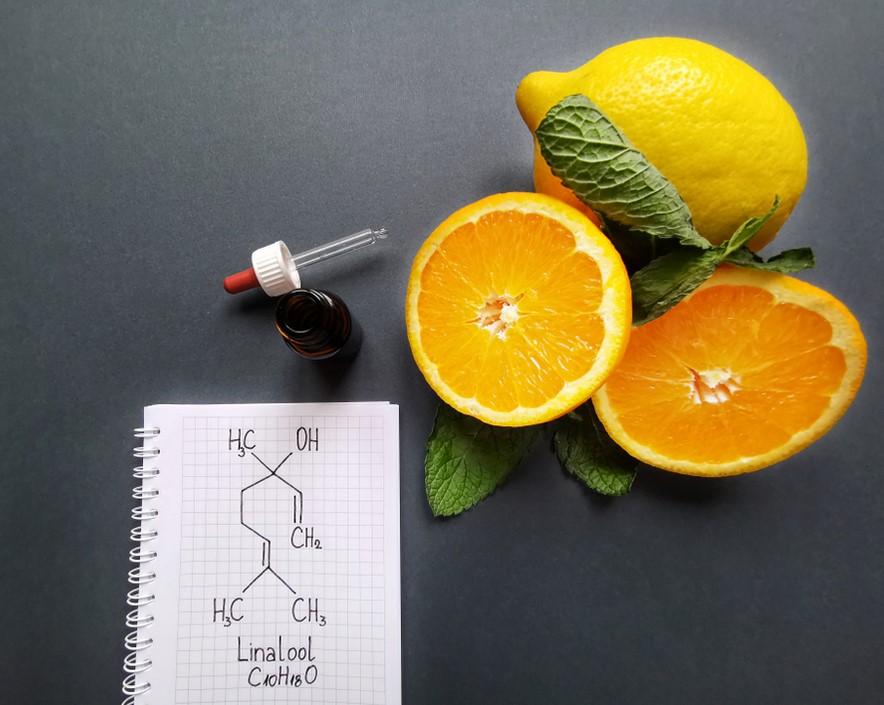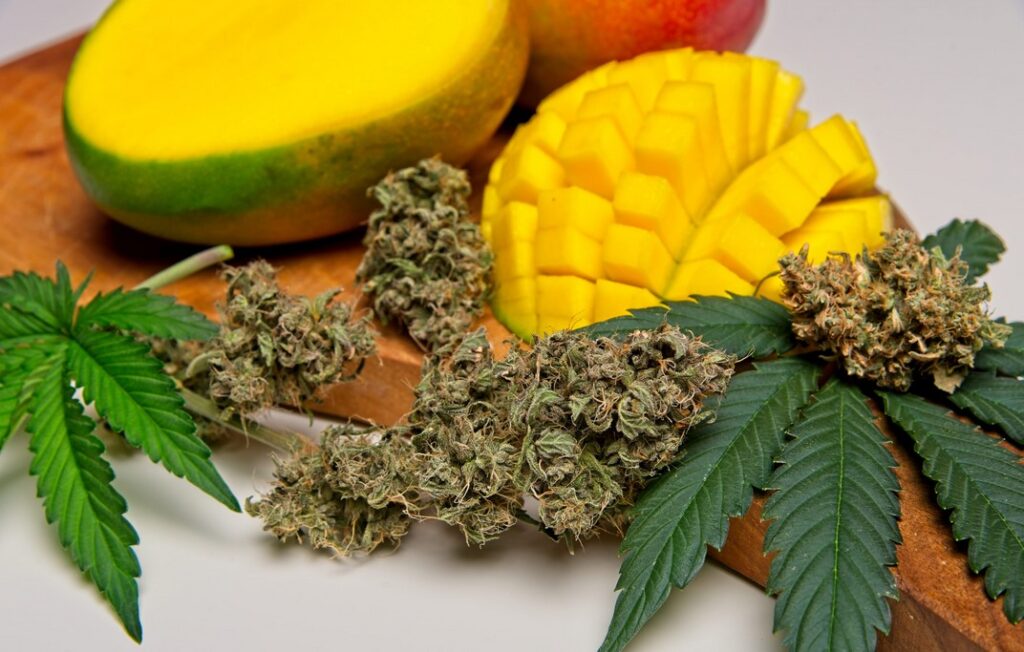As many cannabis consumers are aware, cannabis is known for being an ideal medicine in the treatment of anxiety. However, most patients are completely unaware of the reasons for this, or the special chemicals that imbue cannabis with its reputation for inducing calm and relaxation. If you’d like to buy the best Cannabis for Anxiety, use cannabis delivery to your home.
The answer lies with compounds called terpenes which exist in every strain of cannabis, as well as many other organic materials. Terpenes lend cannabis its distinct characteristics, which range from eliciting a lovely flavor of strawberry to anti-inflammatory effects that relieve pain and promote restfulness. Here are some of the most common terpenes for anxiety you’ll find in many strains of cannabis today.
3 Good Terpenes for Anxiety
Limonene
Limonene is a unique terpene found in cannabis strains that elicits the sensation of citrus whenever it is encountered. Derived from the oil of citrus peels, such as lemon or oranges, limonene is known as one of the best terpenes for anxiety, as strains enhanced with limonene are known to relieve paranoia or restlessness.

Some preliminary research has begun to show that limonene is a potential anti-depressant, which sheds light on this terpene’s presence in famous strains aimed at combating depression like Super Lemon Haze. Limonene-laden strains are also employed in the treatment of certain types of cancer, making this terpene applicable to a wide variety of situations.
Caryophyllene
While caryophyllene might be associated with harsher flavors like garlic and pepper, its anti-inflammatory power makes this one of the ideal terpenes for anxiety. Strains that employ caryophyllene are known to be some of the most restful, calming strains currently available on the market, and can be used to treat conditions ranging from arthritis to Alzheimer’s.
Researchers studying cannabis since the dawn of legalization in America were surprised to discover that caryophyllene interacts with cannabinoid receptors in the body, despite not being a cannabinoid. This finding paved the way for further research into the properties of terpenes and how they could be used to modify the effects of cannabis strains to offer patients a more vast range of options for treatment.
Myrcene
Myrcene is one of the more interesting terpenes found in cannabis, as its origins can be traced to a wide variety of herbs used in the holistic treatment of pain and inflammation. Found in famous strains from Harlequin to Cannatonic, Myrcene is perhaps the most potent terpene for anxiety currently available to cannabis consumers.
The most noteworthy property of this peculiar terpene is the way it interacts with the THC naturally occurring within cannabis. While myrcene is typically encountered in the form of plants like thyme, when encountered in cannabis this chemical has the potential to supercharge the effects of THC, producing a much more effective and longer-lasting high. That’s why myrcene-imbued strains are considered to be some of the most potent.
What does it mean if a substance is anxiolytic?
If a substance is anxiolytic, that means it’s useful for anxiety. Most anxiolytic substances alter the flow of chemicals in your nervous system.
There are two distinct ways that a substance can be anxiolytic:
- By mitigating the physical symptoms of anxiety, such as shaking, tremors, or muscle tightness
- By mitigating the psychological symptoms of anxiety, such as fear, paranoia, or panic
In the former case, anxiolytic substances physically prevent your body from exhibiting symptoms of anxiety. In the latter, the psychological foundation of an anxious response is addressed.
Many anxiolytic substances operate using both physiological and psychological mechanisms. The best anti-anxiety treatments reduce feelings of anxiety without significantly altering your neurochemistry.
Do terpenes help with anxiety?
Yes, research indicates that certain terpenes may help with anxiety. Each terpene interacts with your system differently, but these substances are all similar in that they are non-intoxicating and have minimal side effects.
Terpenes are also non-addictive. Abuse of benzodiazepines, which are the most commonly prescribed drugs for anxiety, is rampant, giving rise to increased interest in anxiety treatments that do not have any abuse potential.
Certain terpenes may work together to combat anxiety from multiple angles at onceven . That’s one of many reasons it’s best to use terpenes together rather than ingesting isolated terpenes on their own.
Which terpene is best for anxiety?
The terpenes limonene, myrcene, caryophyllene, linalool, and pinene have all been researched for their potential anti-anxiety benefits. Each of these terpenes has different attributes, so strains that combine as many of them as possible are the most likely to be beneficial.
It’s important to note that all of the terpenes we’re about to explore can be derived from non-cannabis as well as cannabis sources. Terpenes derived from non-cannabis plants are more desirable for economic and legal reasons.
Does limonene help with anxiety?
Limited laboratory studies support further research into the benefits of limonene for anxiety. A 2013 study published in Pharmacology Chemistry and Behavior, for instance, reports findings on the anxiolytic potential of limonene when used in aromatherapy, and a 2014 study published in Rejuvenation Research explores the ability of limonene to reduce stress, which is closely tied to anxiety.
Does myrcene help with anxiety?
Cannabis users report that strains with high concentrations of myrcene provide the best anti-anxiety effects. Research supports the necessity of new insights on the relationship between myrcene and anxiety. A 2011 research paper by Dr. Ethan Russo published in the British Journal of Pharmacology, for instance, details investigations into the potential anxiolytic benefits offered by a combination of myrcene, limonene, and pinene.
Does caryophyllene help with anxiety?
Caryophyllene is famous among terpenes for its ability to interact with the body’s CB2 receptors, which are largely responsible for the non-psychoactive benefits of THC. These receptors are believed to be involved in anxiety, and in 2020, a new study into the anti-anxiety potential of caryophyllene was published in the journal Natural Product Communications.
Does linalool help with anxiety?
Linalool, one of the primary constituents of lavender essential oil, has been widely researched for its potential anti-anxiety properties. In 2018, for instance, a study published in Frontiers in Behavioral Neuroscience detailed the anxiolytic potential of inhaled linalool in animal subjects.
Does pinene help with anxiety?
The effects of pinene on anxiety are less-researched, but initial studies are promising. An animal study published in Phytotherapy Research in 2014, for instance, detailed the anti-anxiety potential of pinene when inhaled.
Final Thoughts about Terpenes for Anxiety
Hopefully, those wanting to reduce anxiety can find relief from one of the marijuana strains mentioned above. Although we have mentioned only five terpenes above, many more may help users relax and de-stress.
Essential oils have long been linked with relaxation, with various clinical trials illustrating positive results. However, to what extent they can help with anxiety and stress remains largely unknown.
Additionally, it’s essential to understand that each individual’s body chemistry can vary. What works for one user may not necessarily work for the next individual. As scientific knowledge delves deeper into its properties, hopefully, one day, we will fully understand what terpenes are good for anxiety.
